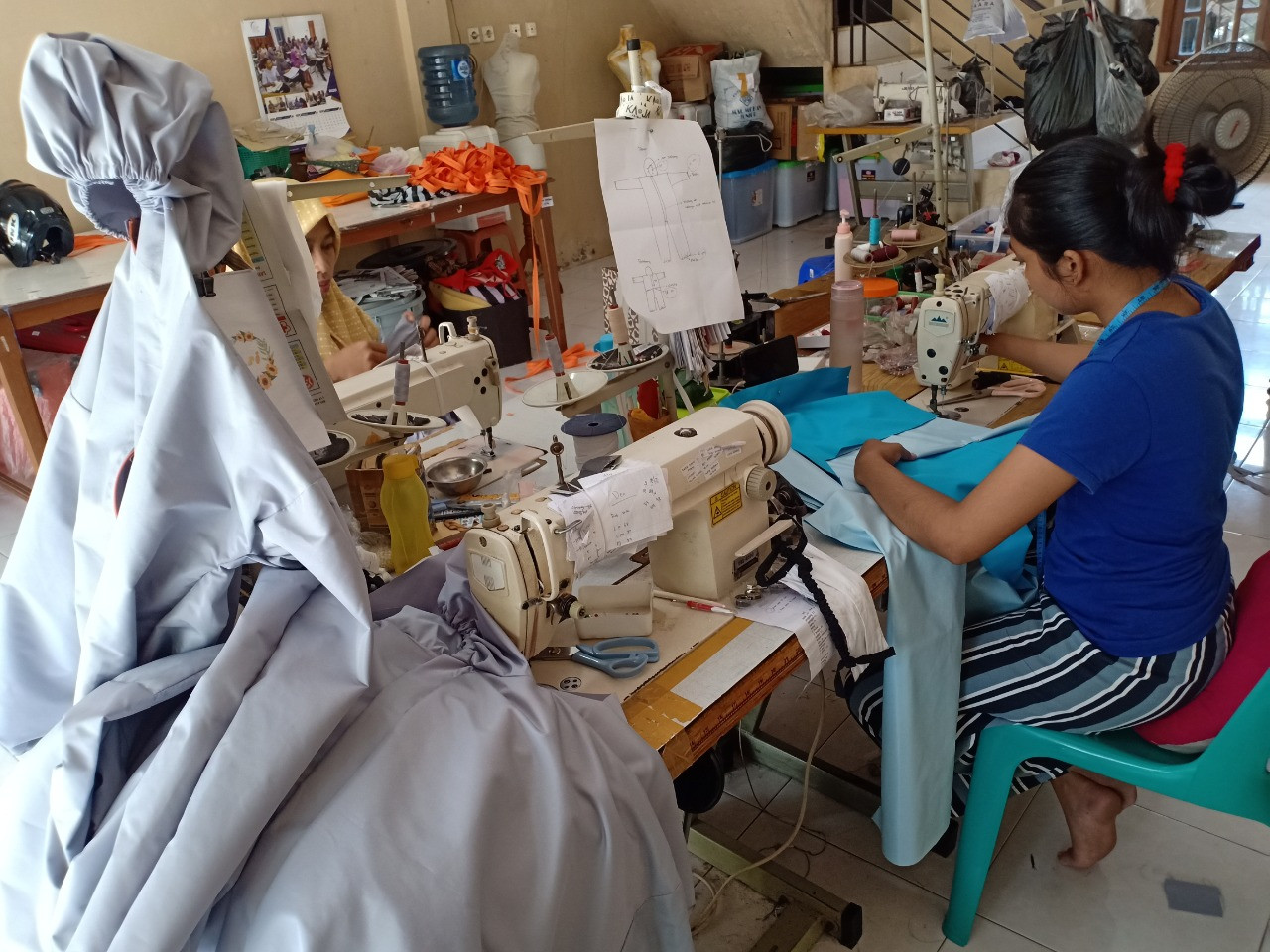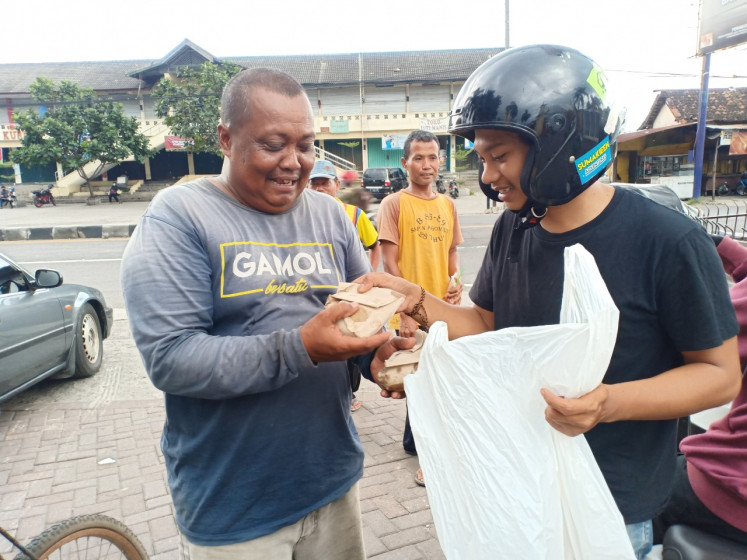Fashion shops, civil groups work hand-in-hand to cope with virus impact in Yogyakarta
A popular cultural hub, creative workers in Yogyakarta are doing all they can to help curb the virus spread.
Change Size
 Tailors at Santishop Manufacture Indonesia produce on hazmat suites on March 28. (JP/Bambang Muryanto)
Tailors at Santishop Manufacture Indonesia produce on hazmat suites on March 28. (JP/Bambang Muryanto)
E
ka Apriyani and Yaorohmi Fauzanah are tailors specializing in kebaya for Yogyakarta boutique Santishop Manufacture Indonesia.
But instead of seaming delicate fabrics, these days they are busy sewing waterproof fabric to produce hazmat suits for medical personnel handling patients with COVID-19 in the province.
Santishop Manufacture Indonesia's owner, Paksi Raras Alit, said the move was made after she learned about the shortage of such essential items in hospitals. For weeks, social media was flooded with videos of medical personnel wearing rain coats to handle suspected COVID-19 patients, exposing themselves to high risk of infection.
Paksi, together with a number of small business owners in Yogyakarta, then decided to produce the protective suits by using the resources they had.
"For the first stage, I personally will produce 100 hazmat suits and subsequently distribute them to hospitals in need for free," Paksi said last Saturday.
In addition to helping medical personnel, some groups are also helping informal workers whose incomes have been heavily affected by the implementation of physical distancing policies to curb virus transmission.

Yogyakarta is the province with sixth-largest number of cases and deaths in the country, with 28 cases and two deaths as of Wednesday.
Despite unclear direction from the central government, the local administration and residents have taken the initiative to block roads, close offices and other public areas to prevent crowds that may trigger virus spread. The move, however, has taken its toll to the livelihoods of low- income workers, such a porters and pedicab drivers at traditional markets.
Civil society groups and students have formed the Solidaritas Pangan Jogja (Yogyakarta Food Solidarity) movement, through which they distribute food, vitamins, protective masks and hand sanitizer to low-income families at Gamping, Legi and Beringharjo markets.
Read also: Public donations for COVID-19 task force in Indonesia top Rp 66.5b
Local artist Iwan Wijono, who operates a homestay and public kitchen, applies a cross subsidy scheme for food items he sells, so customers can buy food at a higher price for donation. The money is then be used to cook hundreds of meals every day for people in need.
"The sustainability of this movement depends on people's donations," Iwan said.
Illustrators and tailors under fashion producers Dagadu, Inteeshirt and Yes No Shop are also working together to produce face masks to be distributed to those who continue to work on the streets to transport people or deliver food.
"We have no power to stop COVID-19 transmission on a larger scale but we can obviously do small things to slow it down," artist Akiq HW said.
"Hopefully, what we are doing can inspire more people to help one another during this health crisis," said activist Budi Hermanto said. (vny)









